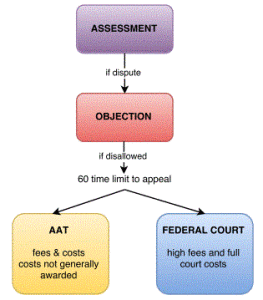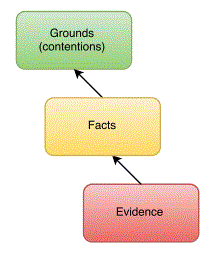A request for an amendment to the Australian Taxation Office (“ATO”) can be to resolve a disagreement about an assessment with alternative dispute resolution (“ADR”). The ATO offers ADR services including:
- by an ATO in-house facilitator (mediator); or
- for large and complex disputes only, appointment of an expert external mediator.
What does a mediator in ADR do?
The role of the mediator is to assist the ATO and the taxpayer to identify the real matters in dispute in the assessment and to assist the parties to find a way they can work through to an outcome on which they can agree to end the dispute over the assessment.
When does ADR work?
ADR can be useful for isolating matters in dispute, identifying prospects of success in the dispute and working towards resolution of the dispute with the ATO at lower cost. However this usefulness will depend on the type and the scope of the dispute over the assessment.
The ATO and the taxpayer will not necessarily have common ground on which resolution can be reached with the aid of mediator. The success of the mediation will turn on how far apart the ATO and the taxpayer are over the facts, their collection and how the tax law should be applied to those facts.
ADR surely preferable as an adjunct strategy
If the ADR does not track towards an acceptable outcome for the taxpayer with the aid of the mediator, to where does the taxpayer then turn? The taxpayer will have no leverage in ADR with the ATO should the ATO understand that the taxpayer’s rights to contest the assessment have expired or will expire during the course of the ADR. It is thus up to the taxpayer to ensure that an objection is either made or will be made on a timely basis so the ATO can foresee that the taxpayer has or may exercise rights to contest or even appeal the disagreement should the dispute not resolve through ADR.
Just an ADR request to the ATO is as problematic as other isolated forms of request for an amendment as a request alone does not give the taxpayer a fall back position. An ADR arrangement with the ATO makes more sense as an adjunct to a submitted or proposed objection on time.
ATO In-House Facilitation
The ATO have released an informative video explaining the in house ATO facilitation service in simple terms:
The Tax Objection can act is a representative in in-house facilitation by the ATO or in other ADR with commissioners of taxation.


